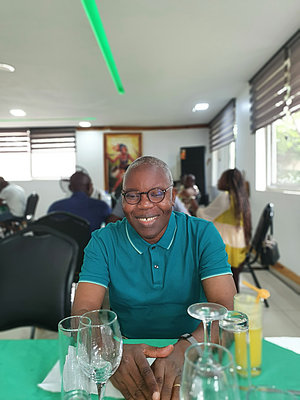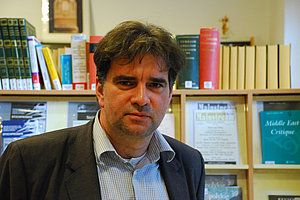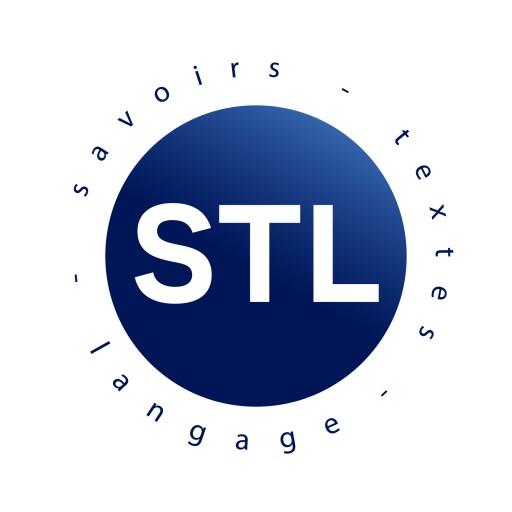Keynote speakers

Biography
Quill Kukla is Professor of Philosophy and Director of Disability Studies at Georgetown University, and currently a Visiting Research Professor at Queen's University Belfast. From 2021 to 2023, they also held a Humboldt Stiftung Research Award at the Institut für Philosophie at Leibniz Universität Hannover. They received a PhD in Philosophy from the University of Pittsburgh and an MA in Geography from the City University of New York, and completed a Greenwall Postdoctoral Fellowship at The Johns Hopkins School of Public Health. Their most recent book is City Living: How Urban Dwellers and Urban Spaces Make One Another (Oxford University Press 2021) and their forthcoming book is entitled Sex Beyond ‘Yes!’ (W. W. Norton & Co. 2024).
Engaging rationality today
What is rationality?
This question is maybe too big for me to have a pithy answer to!
Abstract
Epistemic Diversity and Ignorance in Science
It has been a largely unquestioned assumption in the philosophy of science, even among those who are interested in the essential role of values and standpoints in science, that knowledge is the epistemic attitude that scientists primarily strive to attain, and that scientific rationality is essentially structured by a quest for knowledge-oriented values such as warranted scientific belief and scientific hypothesis acceptance. In contrast, I argue that scientific practices aim at managing, producing, communicating, and transmitting a diverse range of epistemic attitudes, including not only knowledge, but also ignorance, curiosity, suspicion, provisional acceptance, uncertainty, doubt, concern, attention, and more. Scientific practice often aims at unsettling our epistemic security rather than settling or enhancing it, or at redirecting our attention rather than offering a secure piece of knowledge.
My claim is not just that scientists often have and articulate these various attitudes and goals along the way in their march towards knowledge, but rather that having and transmitting such attitudes is often the structuring goal of scientific rationality. Scientists do not just pursue knowledge; they do things like try to undercut one another’s certainty; build openings for future research programs; debunk methodologies; recruit more researchers to their programs; and so on. It is artificial, I will try to show, to see all this activity as ultimately organized by a pure quest for knowledge, and hence scientific rationality and knowledge-seeking need to be conceptually uncoupled.

Biography
Born in 1963. Full professor since 2002. Teaches moral and political philosophy as well as the history of modern and contemporary philosophy at the Joseph Ki-Zerbo University of Ouagadougou in Burkina Faso.
Currently the head of the philosophy laboratory, the managing editor of the journal Le Cahier Philosophique d'Afrique (founded in 2002), and the national coordinator of the Manifesto for Freedom movement.
Was an invited researcher at the University of Namur, Belgium between 2001 and 2005, and since 2002 has held posts as a visiting professor at the Universities of Brazzaville, Bouaké, Bremen, Conakry, Cotonou, Dakar, Kara, Lille, Libreville, Lomé, Niamey, at U.C.A.O of Abidjan and that of Bamak.
Has published, to date, twelve books, at least five of which relate to the theme of rationality today: Why philosophize in a national language? (2022), written in the mooré language and published by University Press of Ouagadougou, Thinking commitment (2012), Philosophy and history (2003), The speech and the city: Essays in political philosophy in (2002) all published by Harmattan, and For an ethics of commitment (2008), published by Namur University Press in Belgium.
What is rationality?
At first glance, rationality reveals the capacity of linking different people. This is why language has a special connection to rationality. Searching for rationality, however, leads us to discovering the limits of language, namely, its diversity and breadth for expressing emotions and expectations. Rationality implies recognizing these limits and, at the same time, a commitment to what human beings share. As a behavior related to values, rationality has ethical and political consequences.
What does rationality rule out?
Rationality rules out the attempt of rejecting some kind of link with other human beings. Radically, such an attitude would lead to silence or nonsense. Is it even possible to escape language? Isn’t irrationality just attempting to find a meaning that has not yet been recognized?
How does your talk engage with rationality today?
The experience of philosophizing in an African language opens new perspectives. It shakes up the unconscious, established, hierarchy between languages. This hierarchy, and the inequality of languages, is a widely held belief. Worse, critiquing this belief is often seen as leading to skepticism or relativism. Philosophizing in Mooré is an effort to express something that all human beings share. Conceptual creation enables languages to discover their own capacities and to strengthen their link with other languages. Rationality remains a link: both within and beyond communities. The aim of philosophy is to help think this like, for instance, in the way that moral rules and political commitments are supposed to help create and reinforce links between people.
Abstract
Rationality and language diversity
Is the diversity of languages an argument against rationality? The answer to this question has long seemed obvious: language differences create barriers between human communities. Nevertheless, humanity has always imagined means for overcoming these barriers and establishing communication (such as, among others, formalization and translation). But how useful can they be? Instead of repeating theories concerning the limits of communication between human beings, this presentation will tackle this question by referring to the project of philosophizing in an African language. This project involves a language-creation process that shows that the perceived inequality between languages can be overcome. Expressing philosophical ideas in Mooré, an African language far different from the European languages that are normally used to express such ideas, helps to reveal both the potential extent and the potential limits of rationality. This talk will thus look at:
- The seduction of the relativist thesis
- The organization of communication
- The link between translation and domination
- The rescue of language creativity.
Bibliographical indications
Appiah, K. A. (1992). In my father’s house: Africa in the philosophy of culture. New York & Oxford, Oxford University Press.
Canivez, P. ( 2013). Qu’est-ce que l’action politique ? Paris, Vrin.
Casanova, P. (2015). La langue mondiale. Traduction et domination. Paris, Seuil.
Diagne, S.B. (2022). De langue à langue. L’hospitalité de la traduction. Paris, Albin Michel.
Frege, G. (1970). Translations from the philosophical writings. Oxford, Basil Blackwell.
Habermas J. (1984, 1987) Theory of communicative action. Boston: Beacon Press.
Lee Whorf, B. (2011). Selected writings. Mansfield Center, Martino Publishing.
Lyotard, J.F. (1984) Le différend. Paris, Minuit.
wa Thiong’o, N. (1986) Decolonizing the mind, UK, Heineman
Rawls, J. (2003), The laws of peoples. Cambridge, Harvard University Press.
Weil, E. (1950), Logique de la philosophie. Paris, Vrin.
Wiredu, K. (1996), Cultural Universals and Particulars. Bloomington & Indianapolis, Indiana University Press.

Biography
Kai Kresse, Professor of Social and Cultural Anthropology at the Freie Universität Berlin, and Vice-Director for Research at the Leibniz-Zentrum Moderner Orient (ZMO). I hold a PhD in Social Anthropology and African Studies from SOAS, University of London (2002), an MA in Social Anthropology from LSE, University of London (1997), and an MA in Philosophy, African Studies and German Literature from the University of Hamburg (1996), where I also studied KiSwahili from the very beginning of my undergraduate studies. As a student travelling in East Africa, I was fortunate to get to know the late Kenyan philosopher Professor Henry Odera Oruka in person (before his untimely demise in 1995), who is famous for his ‘sage philosophy’ project advocating that philosophers should conduct fieldwork on wise men and women in African communities. My own research on Swahili thinkers and intellectuals has been inspired by this, and I have continued to collaborate with Oruka’s students until today. In collaboration with them, I have published two books on Oruka and his sage philosophy: 1) in 1997, the co-edited book Sagacious Reasoning: Henry Odera Oruka in memoriam (with Anke Graness; published as African edition by East African Educational Publishers in Nairobi, 1999); and 2) in 2023, Rethinking Sage Philosophy: Interdisciplinary Perspectives on and Beyond H. Odera Oruka (Lexington Books), co-edited with Oriare Nyarwath. I was Lecturer in Social Anthropology at the University of St Andrews in Scotland (between 2002 and 2009), and was awarded the Evans-Pritchard Lectureship at All Souls College, Oxford, in 2005. Between 2013 and 2018, I was Associate Professor of African and Swahili Studies at Columbia University in New York, in the Department for Middle Eastern, South Asian and African Studies (MESAAS).
I have published on African philosophy, Swahili culture and society, Islam in East Africa, and Indian Ocean connections. My first monograph, Philosophising in Mombasa: Knowledge, Islam, and Intellectual Practice on the Swahili Coast (2007) portrays three well-known Mombasa-based Swahili thinkers and their thought, namely (the now deceased) Ahmed Sheikh Nabhany, Ustadh Ahmad Nassir, and Sheikh Abdilahi Nassir. It was shortlisted for the Herskovits Award of the African Studies Association (based in the USA). Further publications include Guidance, an English translation (with Hassan Mwakimako) of selected essays by the reformist thinker Sheikh al Amin bin Ali Mazrui (died 1947) (orig. Uwongozi [1944], 2017, Brill), and an edited volume on a celebrated Kenyan poet and political activist, Abdilatif Abdalla: Poet in Politics, published by Mkuki na Nyota, in 2016. My second monograph, Swahili Muslim Publics and Postcolonial Experience (Indiana University Press, 2018, and Mkuki na Nyota, Dar es Salaam, 2019) deals with different layers of experiences of marginalization of coastal Muslims in Kenyan, with a particular focus on public internal debates in Swahili among them. It has recently been translated into Kiswahili by the Tanzanian writer William Mkufya and will be published by Mkuki na Nyota (hopefully in 2024). Based back in Berlin since 2018, I have been building an international collaborative network with Berlin-based colleagues and their academic partners from the global South, resulting in two OPEN ACCESS volumes:
Thinking the Re-Thinking of the World: Decolonial Challenges to the Humanities and Social Sciences from Africa, Asia and the Middle East (co-edited with Abdoulaye Sounaye), published by de Gruyter, in 2022: https://doi.org/10.1515/9783110733198
Thinking with the South: Reframing Research Collaboration amid Decolonial Imperatives and Challenges (co-edited with Andrea Fleschenberg and Rosa Cordillera Castillo), published by de Gruyter, in 2023: https://doi.org/10.1515/9783110780567
In a recent joint article, together with Abdilatif Abdalla, Farouk Topan, and Irene Brunotti, we discuss constructive pathways for ‘critical Swahili Studies’ (taking on board current concerns for intellectual decolonization); see SWAHILI FORUM 23 (2023): SwaFo 30 - 1 - Abdalla, Brunotti, Kresse, Topan (qucosa.de)
Engaging rationality today
If we are engaged here at this conference with the process of ‘re-thinking rationality’, from my perspective I would like to ask and pursue the question, need not this process of rethinking ‘rationality’ itself be an empirically based and multi-locally (or transregionally) and multilingually informed collaborative explorative inquiry, proceeding necessarily along interdisciplinary lines, between philosophy and anthropology, and with a focus on language, sociality, history (and possibly religion)?
- Along these lines – from the in-between of anthropology and philosophy – I shall ask, how can (or should) such a project look like?
- These considerations should also include some thoughts/reflections on how, in which way(s), it would be adequate, suitable and right to do so, also with a view to current and recent decolonial demands and challenges to the humanities and social sciences?
What is rationality?
Taking ‘the (human) capacity of understanding’ as a conceptual entry-point or baseline here seems useful to me. And rather than focusing on rationality as an essence or abstraction, we should emphasize and pursue a relational, performative, and contextualizing language-oriented perspective (that is open and ready to go beyond language), taking human inter-actions in diverse life-worlds and empirical settings as processes of understanding as our fields of interest.
What does rationality rule out/exclude?
I have no committed position or answer here. Perhaps nothing should be excluded from the outset, before an actual process of working and thinking through the processes of inter-relations (just mentioned) has taken place. What was or may be called ‘irrational’ and ‘a-rational’ (as common opposites) may well not have been understood, or not be seen as understandable from a common (possibly dominant, Eurocentric) perspective yet.
How does your talk engage with rationality today?
Taking the above-sketched starting-point, I take seriously a socially embedded perspective that also takes on board pressing recent/current demands for, and challenges of ‘decolonization’ as they have been voiced from outside the sphere of a dominant (Anglophone) Eurocentrism. In particular, I pick up on positions and arguments as presented by African thinkers and philosophers, and I reflect upon specific examples and illustrations from with the East African Swahili context (my long-term research region) as a case study.
Abstract
Rationality as what is negotiable as common human concern? Anthropological-philosophical reflections building on Swahili thinkers and intellectual practice
Engaging Rationality Today, if it seeks to have general validity and empirical grounding across human life-worlds, cultures, and societies, needs to be (or at least include) an active and open-ended process of reflexive exploration of the multiplicity and diversity of human practices and performances that are seen and designated by practitioners themselves as ‘rational’, in their respective contexts and languages – not least to address critiques of Eurocentrism and decolonial demands.
Even though this may be an anthropological principle, it cannot be ignored by philosophical investigation that is serious in its commitment to clarify our thinking about human rationality in the contemporary world, because it demands from us to take into view the conditions of possibility of understanding ‘rationality’, i.e. diverse human forms and expressions of discourse and practice that speakers and practitioners deem sensible, meaningful, and reasonable, in their respective specific contexts. Conceptual reflection on ‘rationality’ needs to build upon and correspond to diverse kinds of lived experience and its understandings from very different life-worlds – and it needs to keep in view this challenge, as well as the (maybe inevitable) limits and shortcomings of its respective attempts of generalization.
Working between philosophy and anthropology, and building on long-term engagements with the field of African philosophy on the one hand, and Swahili thinkers and forms of knowledge and intellectual practice on the other, I will put in view what (and to what extent) I can contribute from my side to the project of the conference. Drawing from an approach of an ‘anthropology of philosophy’ (Kresse 2007: ch.1) that pursues an understanding of philosophy as social practice in context, and also from my more recent reflections on fundamental relational patterns expressing mutuality and reciprocity that are engrained in discursive tropes and idioms of Swahili social interaction (Kresse 2018: ch.1), I seek to work through what I can bring in from here, both in terms of specific Swahili features that need to be considered, as well as general reflections (which then also build on insights, convictions and theorizations from the Swahili context).
In my talk, I will pay attention to language use and the specifics of social settings, cultural contexts, and transregional intellectual histories, and I will present and discuss specific examples of Swahili thinkers and texts (based on my dialogical ethnographic work) that may help us to clarify a specific non-western and non-Europhone understanding of what it means to be rational and human – and thus to contribute to augmenting and revising a Eurocentric perspective that is still dominant. I will also be pushing these reflections further, in order to explore how far I can pursue generalizing reflections on a sound basis, and where I need to indicate the limits and limitations of what I am able to say and address, in my mediatory position in-between worlds. My talk will use references and contextualization to debates and positions in African philosophy (e.g. Paulin Hountondji; H. Odera Oruka; K. Wiredu; Ngugi wa Thiong’o) and Anthropology (e.g. Karin Barber; Michael Lambek; Tala Asad) as guidelines that lead the discussion.
Recent publications:
https://www.degruyter.com/document/doi/10.1515/9783110733198/html?lang=en
https://www.degruyter.com/document/doi/10.1515/9783110780567/html?lang=en
A recent interview:
https://historyofphilosophy.net/anthropology-philosophy-kresse

